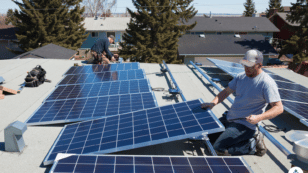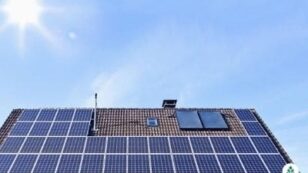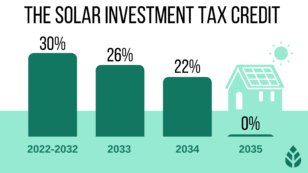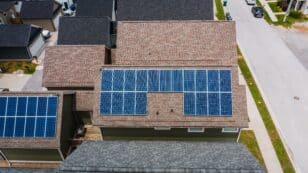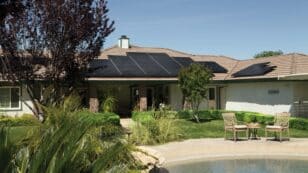
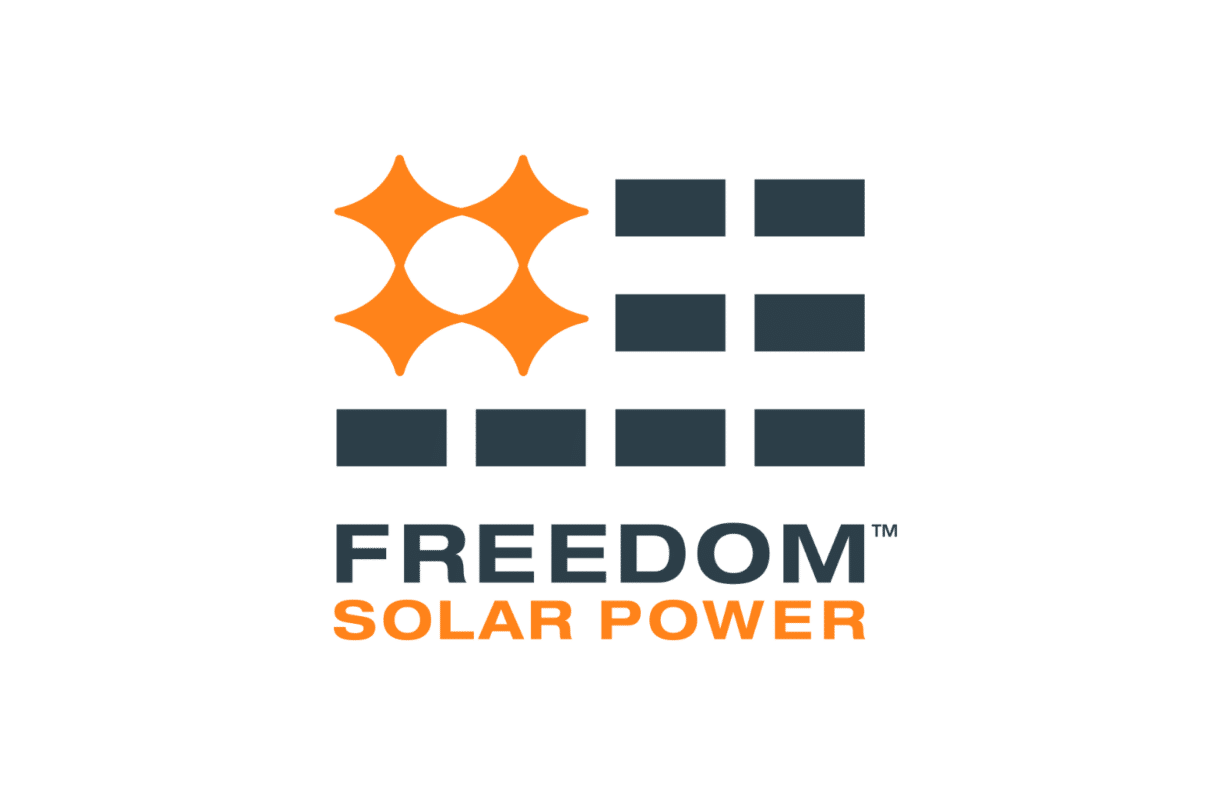
Freedom Solar Review: Costs, Quality, Services (2024)
In this review of Freedom Solar Power, you will learn:
- Is Freedom Solar Power a legitimate company?
- How does the installation process work with Freedom Solar Power?
- Is Freedom Solar Power affordable?
- How do customers review their experience with Freedom Solar Power?
Each product and or company featured here has been independently selected by the writer. You can learn more about our review methodology here. If you make a purchase using the links included, we may earn commission.
Choosing a solar company to handle your solar panel installation can be intimidating, especially since there are so many options. Our Freedom Solar Power review below should help narrow down your selection a bit. We’ll dive into the company’s products, services, pricing, and warranties to help you decide if this is the right company for you.
Is Freedom Solar Power a Good Solar Company?
Freedom Solar Power is an excellent company for handling solar energy conversions. While its service area is growing, it still remains relatively small – allowing for an outstanding customer experience and great service. However, Freedom Solar Power is a bit on the expensive side, though the money gets you some of the most efficient solar panels available and industry-leading warranties on all its products and services.
What Customers Should Know About Freedom Solar Power
Freedom Solar Power was founded in 2007 in Texas by Adrian Buck and Bret Biggart. The company has quickly expanded to include multiple locations in Texas, and it has footholds in Colorado, Florida, North Carolina and Virginia as well. The company says it wants to enable all homeowners to install renewable energy, and thus focuses on solar financing options as well as comprehensive solar products.
Freedom Solar Power is a SunPower Master Dealer — the only one in Florida and Colorado. SunPower panels are some of the best in the industry. Freedom Solar Power also installs Tesla Powerwalls, a high-end solar battery product.
| Freedom Solar Power Fast Facts | |
| Year Started | 2007 |
| Service Areas | Colorado, Florida, North Carolina, Texas and Virginia |
| Services Offered | Solar panel and solar battery installations |
| Types of Solar Equipment Offered | SunPower, SMA, SolarEdge, Enphase, Sonnen, Tesla |
| Certifications | Technicians certified by the North American Board of Certified Energy Practitioners (NABCEP); accreditation by the Better Business Bureau |
| Better Business Bureau Rating | A+ |

Freedom Solar Power

Regional Service
Average cost
Pros
- Outstanding customer service
- Representatives are experts on local policies
- Great warranty coverage
- Offers products from leading manufacturers
Cons
- Expensive
- Limited service offerings
- No leases or PPAs
Freedom Solar Power Review on Services and Installation

Solar Installation Experience
The process of going solar is largely the same from provider to provider, but there can be some minor differences. Below is a step-by-step overview of what you can expect with Freedom Solar Power.
Step 1: Request a Free Quote
The first step will be to provide your contact information to Freedom Solar Power to let them know you’re interested in a free consultation. This typically happens online. You’ll just need to provide your address, name and phone number on the company’s website to get started.
A salesperson will reach out to you quickly to schedule a video chat or phone call. Have your most recent electric bill handy for that call, and be prepared to talk about your heating and cooling systems, your appliances and other aspects of your home. Your sales rep will also be happy to address questions and concerns you might have.
Step 2: Home Inspection
Next, a technician or electrician from Freedom Solar Power will need to come out to your home to confirm the details gathered over the phone. They’ll take roof measurements, and might also need access to your main breaker panel and water meter. This inspection is also a good time to discuss where your solar batteries will be mounted, if you’re interested in them.
Step 3: Design
After your home inspection, the Freedom Solar Power design team will begin designing a solar panel system that meets your energy needs and budget. This typically includes specifications for electrical work and the placement of your panels and batteries. Once you approve the final design and total cost, the process can proceed.
Step 4: Permitting and Installation
Once your design is finalized, Freedom Solar Power will start pulling permits for the installation, which are required by your local municipality. The permit process can take several weeks, depending on where you live and the municipality’s timeline. When the permits are approved, the installation team can begin installing your home solar power system, which typically takes a day or two.
Step 5: Commissioning Your System
Finally, your installation crew can activate your system. At this point, your panels will be producing electricity for your home. Most importantly, this is when your energy savings begin.
Freedom Solar Power Customer Service
Freedom Solar Power is a bit on the expensive side, but most customers seem to agree that the value provided by the company is worth the investment. Most customer reviews mention the outstanding customer service they received from Freedom Solar Power. The company provides consistent communication throughout the process, always maintains a professional demeanor and is quick to respond to phone calls and emails even long after the installation is completed.
Freedom Solar Power Costs and Financing
The price of solar panels varies from customer to customer, primarily based on how large a system you need. When pricing out your solar installation, Freedom Solar Power will consider your monthly energy needs, the size of your home, the direction your roof faces and shading on your property, among other factors.
Most U.S. homeowners pay somewhere between $13,986 and $27,972 for their solar systems, with an average of around $20,979 after the federal tax credit. Freedom Solar Power is generally a bit more expensive than average, so its prices tend to be in the upper half of that range. It’s important to remember that these are just average numbers, and average prices are different in each state.
Freedom Solar Power might be a bit on the expensive side, but it does help homeowners take out solar loans to reduce the upfront cost. The company doesn’t deal with solar leases or power purchase agreements (PPAs), though we usually don’t recommend these options anyway.
Financing Options Through Freedom Solar Power
The table below provides a quick overview of the different financing options available from Freedom Solar Power.
| Cash Purchase | Solar Loan | |
| System Ownership | ✓ | ✓ |
| Upfront Cost | ✓ | ✓ |
| Added Property Value | ✓ | ✓ |
| Eligible for Tax Credit | ✓ | ✓ |
| Payment Due to | Solar Installer | Loan Provider |
If you’re unsure which financing option is right for you, feel free to check out our solar financing guide for help deciding.
Freedom Solar Power Solar Panel Warranty
Warranties are a must-have for any solar customer, but they vary from company to company in their terms and coverage. They often either cover the equipment or the labor. Equipment warranties typically protect against physical damage or a malfunctioning product, while labor warranties cover the installation process and, in some cases, roof leaks due to poor installation practices.
Freedom Solar Power provides an excellent warranty that covers performance, product and workmanship for 25 years.
The SunPower panel guarantees 90% energy production by year 25, plus physical damage and workmanship for 25 years. This is widely considered one of the best warranties in the industry, and many customers believe the higher price for SunPower panels is worth it for the efficiency and warranty.
Freedom Solar Power Reviews
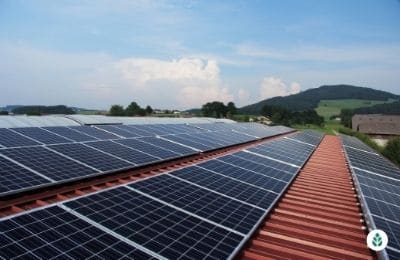
Positive Freedom Solar Power Reviews
Most of the customer reviews for Freedom Solar Power are positive. The majority of customers rave about the outstanding customer service and communication they received from this company. Below are some of the positive reviews to be found online.
“Dave and Dylan were fantastic to work with. They were very patient and knowledgeable throughout the process. They answered all our questions and made sure the project was a success. The process was smooth from start to finish. The guys that installed the roof and panels were very professional. I would highly recommend them.” — Keren via Google Reviews
“Freedom [was] amazing to work with. [The reps] were so patient and kind. Felt like I knew them forever. They were so honest with information. They explained everything so well and answered all of our questions. Such a professional bunch!! The crew [that] came for their install was so polite and clean.” — Gabriella via Google Reviews
Negative Freedom Solar Power Reviews
Of course, not all of the reviews for this company are positive, and it’s important to look at the negative ones, too – even if they are few and far between. Below is one of the only negative reviews of Freedom Solar Power we found online.
“I was misled […] with the assurance that the number of panels I bought would produce enough energy to actually create a positive credit on my bill […] The production report is critical […] for reevaluating […] the services to adjust my consumption or installing additional panels. After countless emails and phone calls with the field manager, they sent me a one-year production report that does not match with the manufacturer, SunPower, nor my provider.” — Kyle via BBB
Solar Energy Provider Comparison
Freedom Solar Power is a great company to hire to manage your solar project, but how does it compare to other top providers? The table below provides a side-by-side look at Freedom Solar Power and two of the best solar installers in the country: SunPower and Momentum Solar.
| Freedom Solar Power | SunPower | Momentum Solar | |
| EcoWatch Rating | 4.0 | 5.0 | 4.5 |
| Year Started | 2007 | 1985 | 2009 |
| Services Offered | Solar panel and solar battery installations | Solar panel; solar battery and EV charger installations; solar monitoring | Solar panel and solar battery installations |
| Service Areas | Colorado, Florida, North Carolina, Texas and Virginia | Nationwide | 11 States |
| BBB Rating | A+ | A+ | A+ |
| Payment Options | Cash payments, solar loans | Cash payments, solar loans, solar leases, power purchase agreements (PPAs) | Cash payments, solar loans, solar leases, power purchase agreements (PPAs) |
The cost information presented in this article is derived from a comprehensive analysis, incorporating data from multiple industry sources. The average cost per watt per state was calculated based on figures from Consumer Affairs, Energy Sage, and Berkeley Lab’s Electricity Markets & Policy Department. Additionally, monthly energy consumption and the average monthly cost of electricity were sourced from the U.S. Energy Information Administration, ensuring a well-rounded and accurate representation of the information presented.
Frequently Asked Questions
Below, we’ll answer some of the most common questions we get about Freedom Solar Power. If you have specific questions that aren’t answered here, reach out to our team of solar experts at solar@ecowatch.com.
Yes, Freedom Solar Power is a legitimate solar panel installation company, and an outstanding one at that. Its services come at a high price, but you’ll get top-of-the-line photovoltaic equipment, unmatched customer service and warranty coverage that will provide ultimate peace of mind.
Freedom Solar Power is a bit on the expensive side, but most customers agree that the value provided is well worth the investment. The company offers an excellent physical warranty, a guarantee of panel efficiency, a workmanship warranty and outstanding customer service. There are very few negative customer reviews anywhere online for this company, so the general consensus is that Freedom Solar Power is an excellent deal.
In most cases, yes, installing solar panels using Freedom Solar Power will lower your electric bills. This company installs SunPower solar panels, which are some of the most efficient in the industry. Your panels will produce electricity that lets you offset your bill from your utility company, thereby saving you money. Over time, your panels are expected to pay for themselves and save you quite a bit in charges from your power company on top of that.
In fact, many customers eliminate their electric bill altogether either by installing a solar battery for energy storage and backup power or through net metering if offered by their electric company.
Freedom Solar Power is a little on the expensive side and usually comes in higher than average in terms of price. However, most customers agree that the value provided by the company makes the price more than worth it.
Freedom Solar Power is headquartered in Texas. It serves the entirety of Texas via offices in Austin, Houston, San Antonio and Irving. It also services all of Colorado from offices in Denver and Colorado Springs and all of Florida from its office in Tampa.
Related Solar Articles
- How Solar Panels Work: Solar Power Science Explained
- Sunpro Solar: Reviews, Costs, Quality & More (2022)
- 2022 SunPower Solar Panels Review: Are They Worth It
- Tesla Solar Roof Review (Is It The Best Option)
- Guide to JA Solar Panels
- BP Solar Panels Guide (Cost, Ratings & More)
- Kyocera Solar Panels Reviews and Ratings
- Guide to Mission Solar Panels
- Buyers Guide to Hyundai Solar Panels
- Reviews and Ratings of Sun Badger Solar

 233k
233k  41k
41k  Subscribe
Subscribe 


